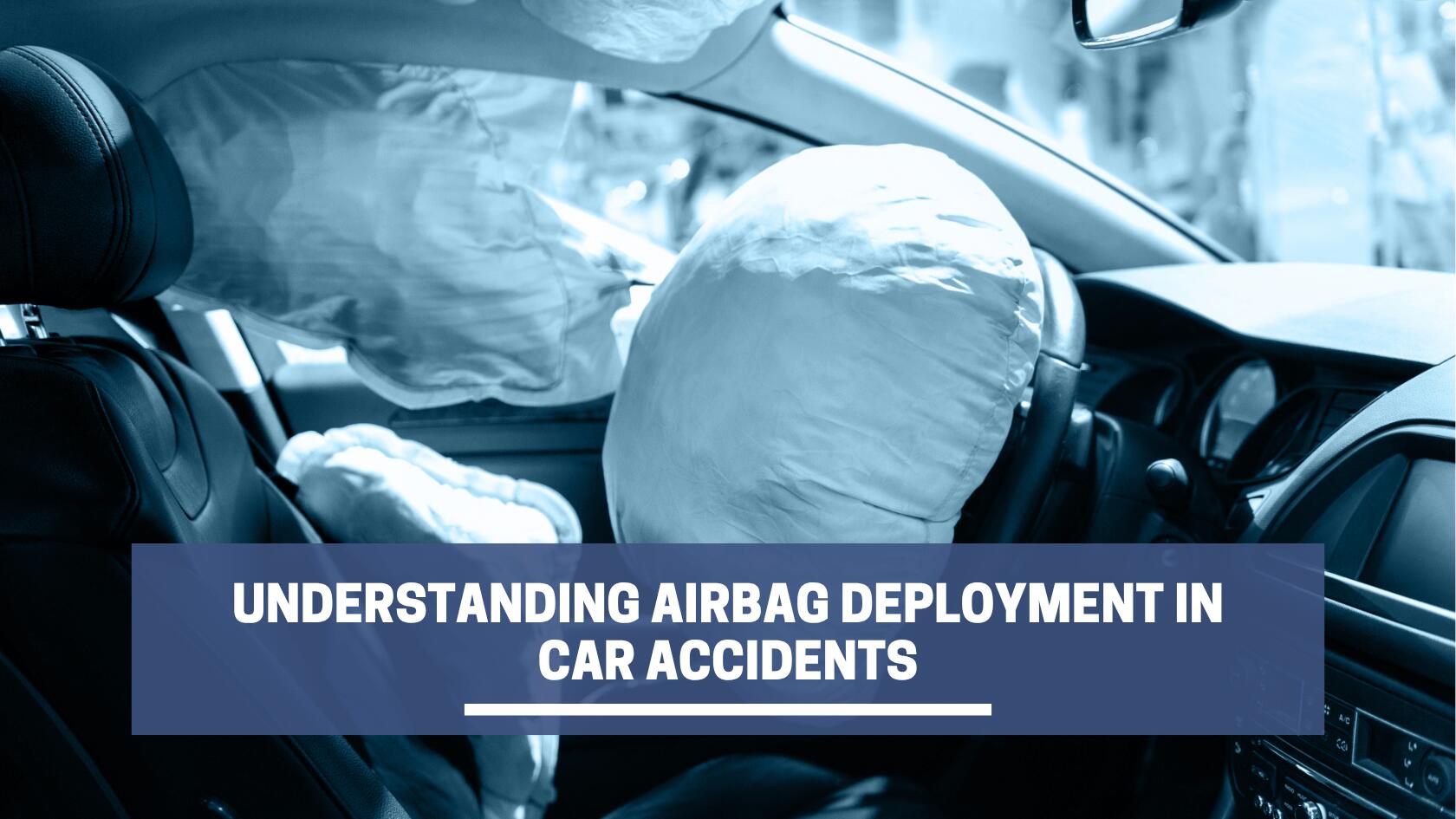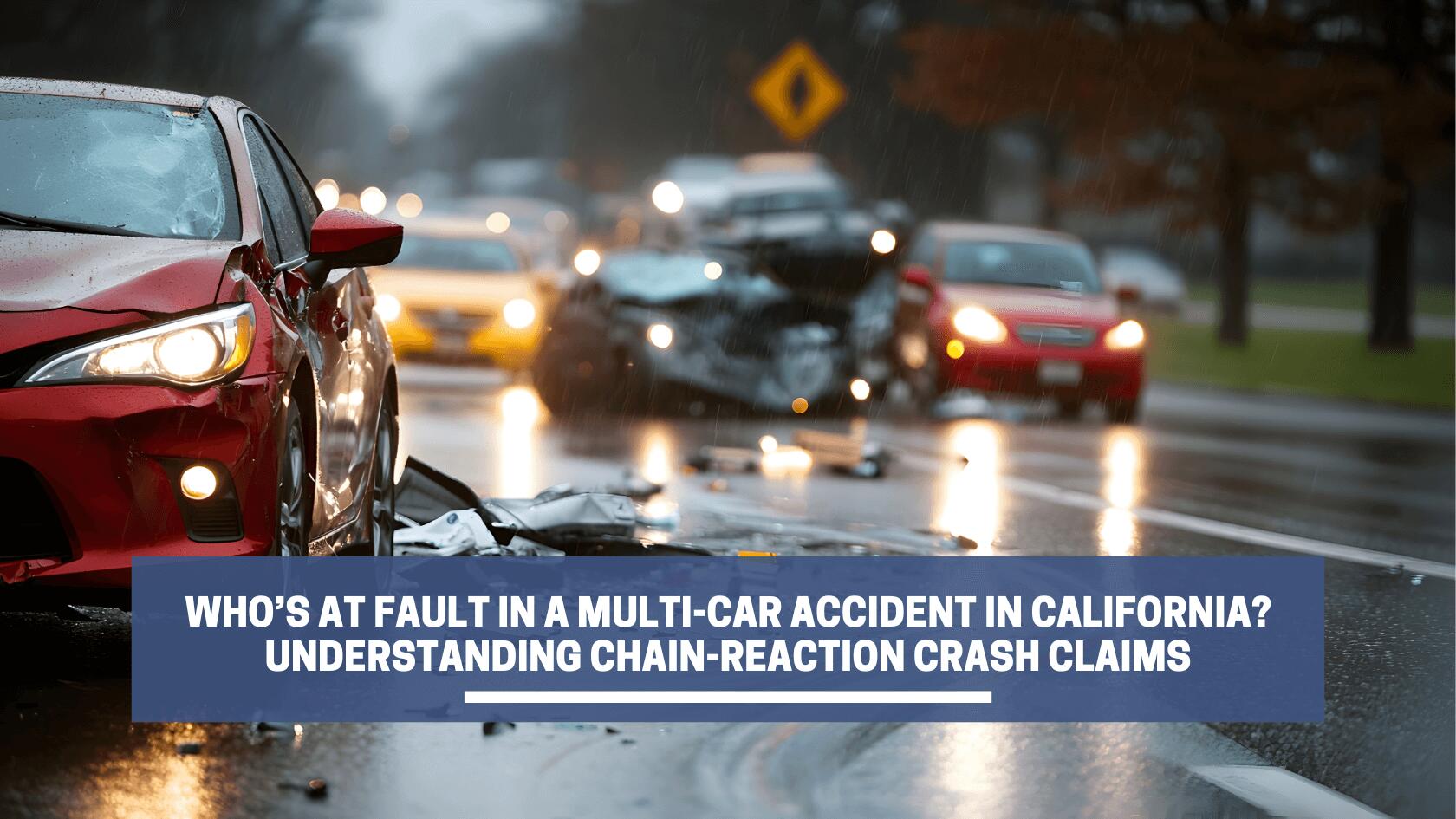When you’re the victim of a major car accident, it’s always a relief to know that you and the other driver are insured. It’s the reason we all get insurance to begin with – to protect ourselves and others in the event of a catastrophe. While insurance companies have a legal obligation to fairly assess and award damages after an accident, they unfortunately don’t always hold up their end of the bargain.
An insurance company is, after all, a for-profit business – one that is naturally driven by their own financial interests, not yours. For this reason, they will oftentimes resort to underhanded and manipulative negotiating tactics to avoid paying you the full settlement you deserve.
Today we will explore some of the ways in which California insurance companies attempt to reduce or deny a claim.
1. Disputing Liability
One of the most common tactics used by auto insurance companies to get out of paying large settlement claims is to shift the blame to the other party. Let’s say you were the victim of a rear-end collision. You then receive a notice from the at-fault driver’s insurer stating that they have reduced your settlement because – upon closer investigation – you were equally responsible for the accident.
This attempt at blame shifting happens frequently because California is a pure comparative negligence state, which means that a percentage of liability can be assigned to each party, no matter who’s at fault. Even if you didn’t cause the accident, but were partially responsible (let’s say by 30%), then the court can reduce your award by that amount.
This gives insurance companies all the incentive in the world to try to pass the buck away from their insured customer and onto you – a popular tactic that is oftentimes done in bad faith with vague evidence, misleading arguments, and complex legal jargon designed to intimidate you. A good auto accident attorney will immediately spot these traps and help you dodge them.
2. Denying Claims Based on Lack of Evidence
Submitting a demand letter to an insurer after a car or motorcycle accident can be a dizzying process. In order to support your claim, you must provide extensive documentation and forms of evidence including police reports, eyewitness statements, medical evaluations, photographs, and more. Despite how diligent you think you may have been in this task, insurance companies will still fire back at you claiming that you did not provide enough evidence – or the right evidence – to conclusively prove that their insured customer is at fault.
Don’t let tricks like these get the best of you here. If an insurer tries to deny your claim based on lack of evidence, you have the right to appeal the denial by taking legal action, and an experienced auto accident attorney can get this process started for you.
3. Being Quick to Settle
In the event that an insurance company has determined that their policyholder is at fault, they may try to contact you immediately after the accident with an early settlement offer. This usually means that they want you to agree to an unfair settlement before you have time to assess the true value of your claim. Sometimes they may even tempt you with quick access to the funds, explaining that if you agree to a lower settlement now, you’ll get the money much faster than having to wait for the claim to be processed.
These are all red flags – and it usually means that the insurance company is trying to mitigate the risk of paying a higher claim amount or a potential jury verdict. Remember that if you agree to anything over the phone or via email, it’s like signing a contract, so it’s important that you give yourself time to consult with an attorney. Many things need to be considered, such as total medical costs for your injuries, especially if you’re waiting for a long-term prognosis. Don’t rush – let a seasoned auto accident attorney help you identify the full extent of your damages.
4. Delaying Without Reason
As if the insurance claims process weren’t already long enough, some insurance companies will try to make it even longer. They may use devious tactics like adding extra paperwork, making you re-submit your claim, or being deliberately untimely with their responses to emails or phone calls regarding your claim.
This all works to their advantage. They know that you are probably facing an onslaught of financial difficulties due to medical bills, lost wages, and car repairs after the accident. The longer they can drag out your case, the more likely you are to grow desperate and settle for a lowball offer. Delaying claims also effectively runs down the clock on the statute of limitations related to your claim, adding even more pressure to your decisions.
Don’t let insurance companies use your time and stress as a bargaining chip. A qualified auto accident attorney can shut down these delay tactics immediately.
5. Asking for a Recorded Statement
As a rule of thumb, be wary of agreeing to any kind of recorded statement. If a claims adjuster asks for a recorded statement, especially soon after an accident, it’s likely that they are trying to take advantage of your natural confusion and high emotional state to get you to say something that can later be used against you.
Any recorded evidence that can hurt your claim and ultimately drive down its value works to their advantage. They could even take your response to the question “How are you?” as an admission of good health, so be careful. At the end of the day, the adjuster works for the insurance company, not for you, so the best course of action is to respectfully deny providing any recorded statement until you have an attorney present.
6. Downplaying Injuries and Disputing Medical Bills
Another common strategy is to downplay or even deny the injuries you claim to have sustained during the accident. They may dig through your medical records, previous insurance claims, or statements from family or friends to try to prove that your injury was a preexisting condition from a previous accident.
They could also argue that your injuries are not as severe as you made them out to be, and may even try to get you to stop taking medication or getting the proper medical treatment by scaring you into thinking that your medical bills won’t be covered. Once you stop, they can take that as an admission that your injuries weren’t as severe as you originally claimed.
7. Misrepresenting the Law or Policy Language
Any insurance company certainly knows the law and their own policies inside and out, but sometimes they will strategically throw out misleading information to see if an inexperienced claimant will take the bait. They might imply that you aren’t entitled to certain damages, or that the damages aren’t covered by their policy (when they actually are). They may also misrepresent or omit information regarding things like insurance policy limits or any applicable laws that may be relevant to your case.
Keep in mind that any insurance company representative is legally required to tell you the truth regarding their internal policies and the law, whether it’s through an in-person conversation or by phone, letters, or emails.
8. Suggesting That You Don’t Need an Attorney
This is a huge warning sign. Think about it: if an insurer were acting in good faith, what difference would it make to them if a legal expert examined your case? Telling you that you shouldn’t bother hiring an attorney probably means they’ve got something to hide.
The claims adjuster may even try to frame it as friendly advice – suggesting that hiring an attorney would be way too expensive and not worth your money in the long run. This is misleading on a number of levels. First of all, most personal injury lawyers – including us at Shirvanian Law – accept cases on a contingency fee, which means that you don’t pay unless we win your case.
Also, hiring an attorney will likely increase the amount of money you receive by a considerable margin, especially if the insurer is acting in bad faith and trying to corner you into accepting an unfair settlement. Let one of our experienced auto insurance attorneys protect your rights against these predatory practices and negotiate the compensation you deserve.











